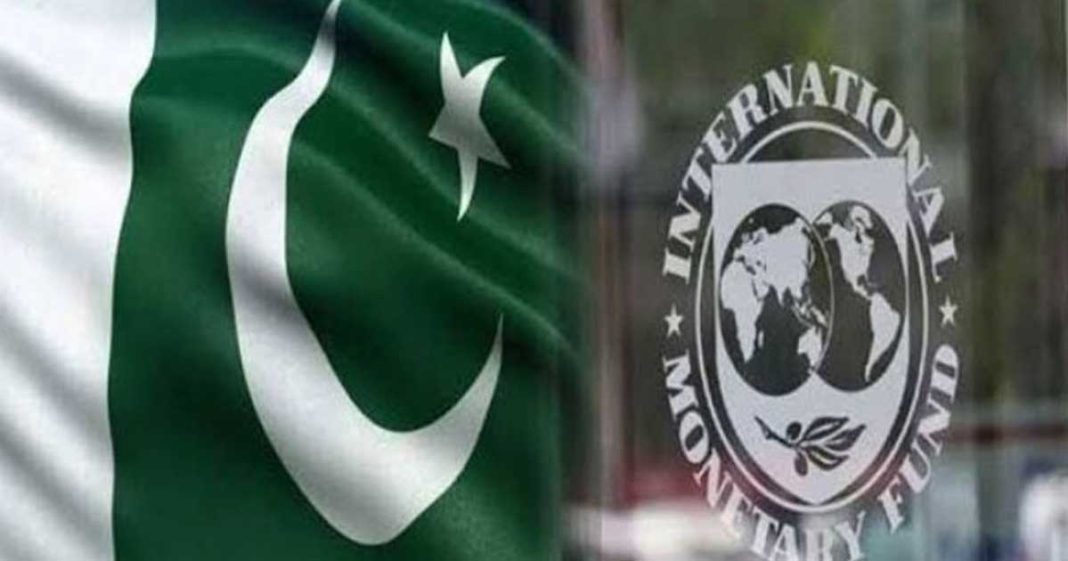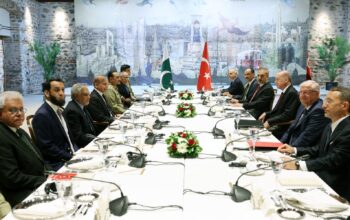By Staff Reporter
KARACHI: Pakistan secured a date for the final approval from the International Monetary Fund to receive the next $700 million tranche from its current loan program, a spokeswoman said on Thursday, as the country faces Asia’s highest inflation and a looming debt crisis ahead of a crucial election.
The IMF’s executive board will meet on Jan. 11 to formally approve the disbursement, which is part of a $3 billion bailout package that Pakistan agreed to in 2023. The board usually follows the recommendations of the IMF staff, who reached a deal with Pakistan last month after reviewing its economic performance.
Pakistan, which has the highest inflation rate in Asia, is struggling to revive its economy after a contraction in the last fiscal year. The country has about $1 billion in dollar-denominated debt due next year and is scheduled to hold a general election in February that could bring political uncertainty and unrest.
Interim Finance Minister Shamshad Akhtar said after the staff-level agreement in November that the country may seek an additional loan from the IMF, describing the economy as “still fragile.”
A Bloomberg economist earlier said Pakistan’s economy is poised to rebound from a contraction in the current fiscal year and expand 2.1 percent in 2024, aided by easing supply bottlenecks, lower interest rates, and continued support from the IMF.
Ankur Shukla, based in Mumbai, said in a report that Pakistan’s economic outlook has brightened after securing a $700 million loan tranche from the IMF in November and growth will probably accelerate to 4.8 percent in fiscal 2025.
“More aid from the IMF is needed. We think this will materialize. In addition, the central bank will likely start cutting rates in March to boost demand,” Shukla said.
“Our monthly tracker shows activity grew 3.2 percent between June and October. Aid from the IMF in July helped prop up activity which had fallen by 8.5 percent between January and June.”
The IMF estimates Pakistan needs about $30 billion annually through fiscal 2028 to service its external debt and finance imports, while its foreign exchange reserves are currently at a paltry $7.02 billion.
“We expect Pakistan to negotiate a new longer-term deal with the IMF once the current program ends in March,” Shukla said.
He added that dollar loans from creditor nations and multilateral lenders, following more aid from the IMF, will help shore up dollar reserves and allow more purchases of raw materials and machinery that enable higher production.
Shukla said that he expects the general election scheduled for February to bring more political stability and investor confidence and that any new government will comply with the IMF conditions and complete the current program successfully.
However, he cautioned that any turmoil around the elections or disruption to the IMF aid could cause growth to fall short of his baseline projection. Shukla said that Pakistan’s growth will also benefit from a low year-earlier base of comparison, as the economy shrank by 0.2 percent in the year through June 2023.
Bloomberg economist said inflation, which averaged 29 percent in the first five months of the current fiscal year, will ease to 24 percent in 2024, as higher domestic agricultural production, lower global oil prices, and a high base effect will help tame prices.
“Hikes in energy prices to fulfill the IMF’s aid terms have kept inflation elevated this fiscal year. Rupee depreciation has also lifted prices. … Higher domestic agricultural production will probably help cool food inflation in 2024. The government has been reducing retail petrol prices since October and lower global crude oil prices will probably allow for further cuts.”
Shukla also said that the State Bank of Pakistan, which raised its key policy rate by 600 basis points to 22 percent in the first half of the fiscal year, will likely start cutting rates in March to stimulate demand and investment.
“We expect it to continue to hold, and refrain from cuts, in December and January, given that inflation will likely stay elevated. … We forecast the policy rate will be slashed by 700 basis points to 15 percent by the end of fiscal 2024.”
Copyright © 2021 Independent Pakistan | All rights reserved




